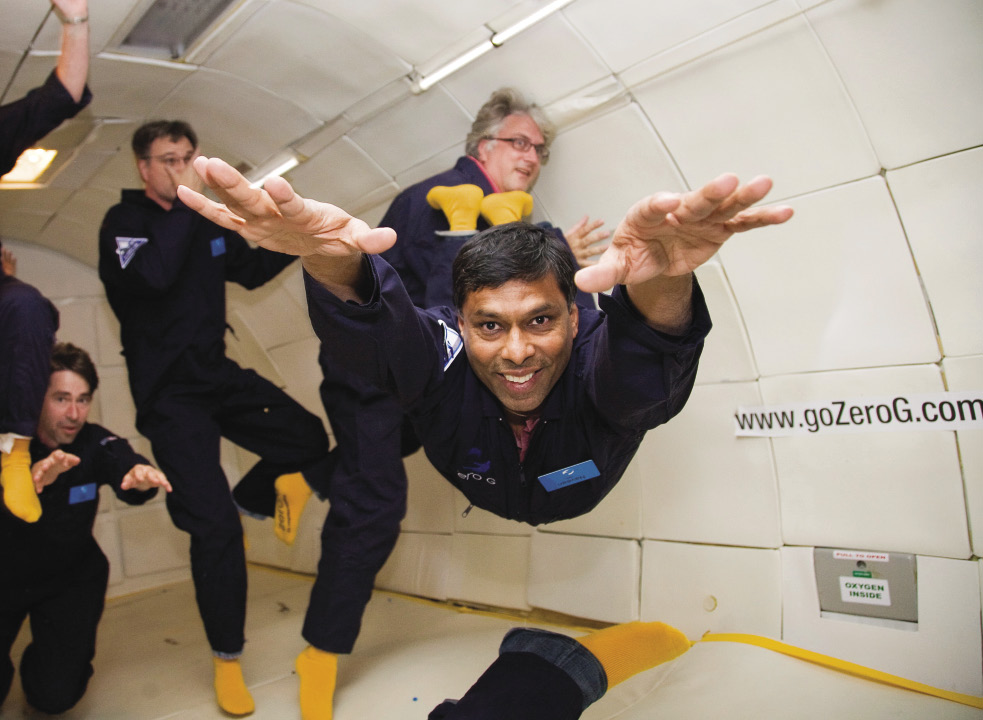
Naveen Jain has now received the permit for [achieving his dreams]. What are his long-term plans for the Moon? Mine resources.
The sky is the limit. It means that anything is possible. But that does not mean much to Naveen Jain. “Where is the sky?” he asks. Nobody who knows anything about astronomy even believes in the sky that is somewhere between Earth and moon or moon and Mars. “The sky is our own imagination,” he adds. “So your imagination is what limits you.” His own seems to be unlimited. The 56-year old wants to be the first to launch a private mission to the moon. Up until now, only nation-states have flown to the moon with their large space agencies, such as America’s NASA.
Jain, who was born in India and became wealthy in the USA, wants to change that. As soon as next year, his company, Moon Express, will be flying to the moon. Now — as the first private citizen — he has obtained a permit from the Federal Aviation Administration, which has been in charge of allowing such access since the 1967 Outer Space Treaty, for a flight leaving Earth’s orbit and a clearance to land on the moon. For Jain, the permit is a breakthrough.
Jain and his team want to participate in the Google Lunar XPRIZE space competition. In order to win the grand prize sponsored by Google, the company must be the first to safely land a probe on the moon and drive a vehicle at least 500 meters over the surface of the terrestrial satellite. The probe must broadcast back to Earth at least two eight-minute long HD videos of the landing and of the distance traveled. That’s quite a tall order. Twenty million USD await the winner, and there are secondary prizes. Fifteen additional teams are in the race, one of them from Germany. None of them believes that the sky is the limit.
When Jain was a child, it did not look like he would ever fund the first private mission to the moon. His family was poor. “We didn’t have food to eat,” he explains. But his mother valued education. Jain studied engineering and business administration and moved to the USA where he worked for various tech firms, until he started at Microsoft in 1989. He stayed there for nearly eight years, developed his career, and experienced how to earn money quickly on the stock exchange. After that, he went into business for himself with InfoSpace, which sought to assemble an online telephone book and index of email addresses, among other things. InfoSpace was worth more than $30 billion before the dot-com bubble burst in 2001. After that, the share price plummeted. Jain, however, had already sold some of his shares and counted among the wealthiest Americans. His current wealth is not known exactly, but he refers to himself as a billionaire.
“To me, it’s all about dreaming”
In 2010, he founded Moon Express with two recognized space experts, and he provides the funding privately. The small company works on its lunar vehicle in Cape Canaveral, Florida; it will be about the size of a washing machine and hop across the moon like a rabbit. He wants to launch it into space with a rocket that has never flown and which currently lacks permits.
Apart from the prize money from Google, Jain envisions unlimited business opportunities on the celestial body. For the long term, he wants to extract resources from the moon — for example, helium-3, which is scarce on Earth. Whether his mission will be a success is still up in the air. But Jain will not be put off. “To me, it’s all about dreaming,” says the entrepreneur. “If you can dream it, you can achieve it.”

Leave a Reply
You must be logged in to post a comment.